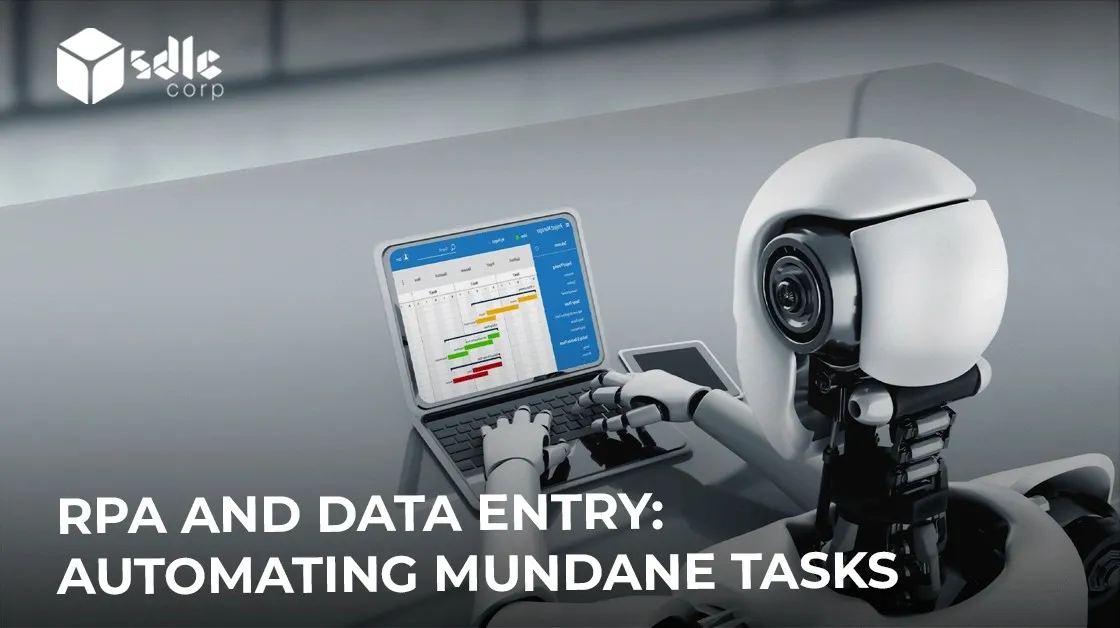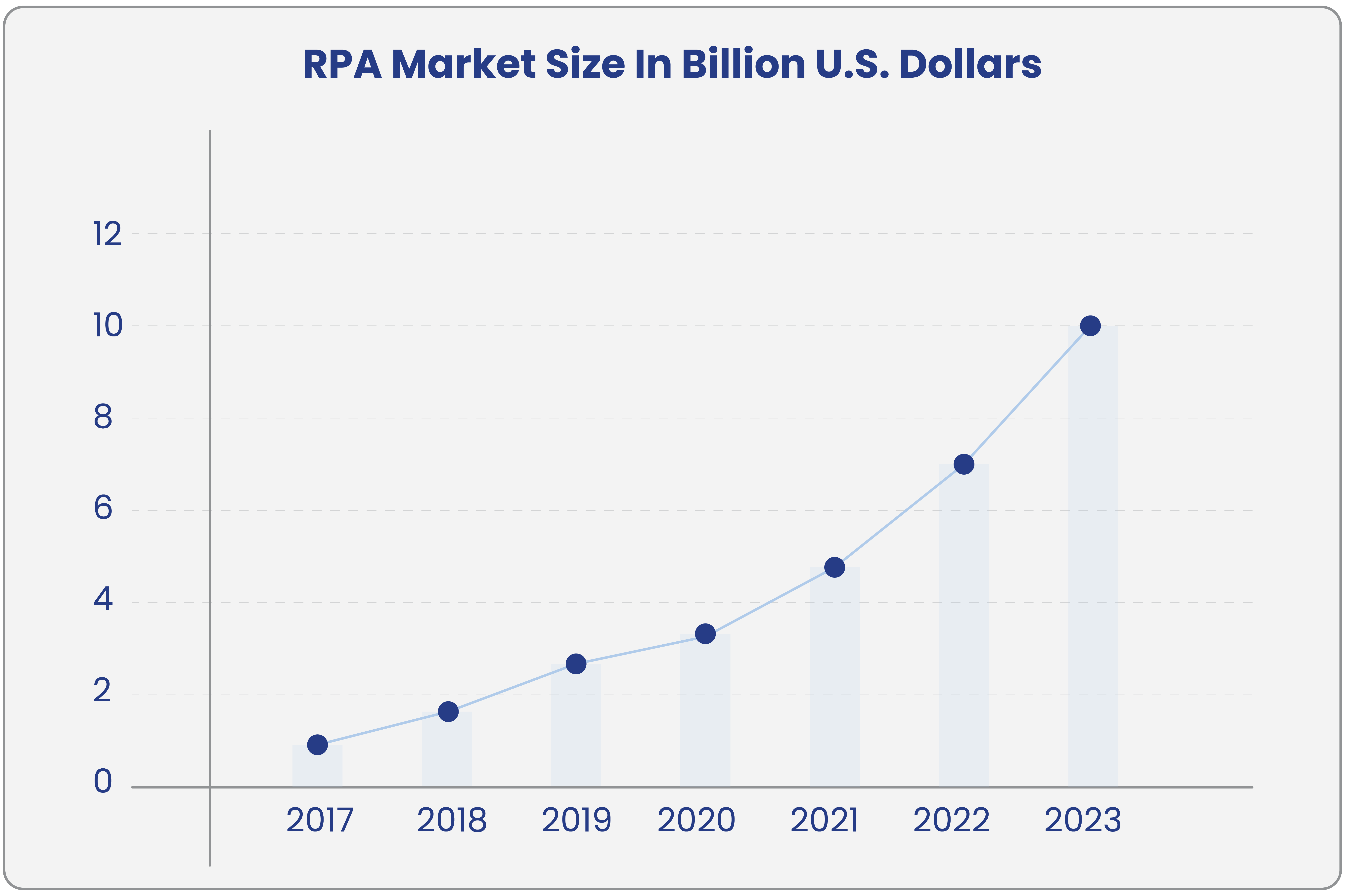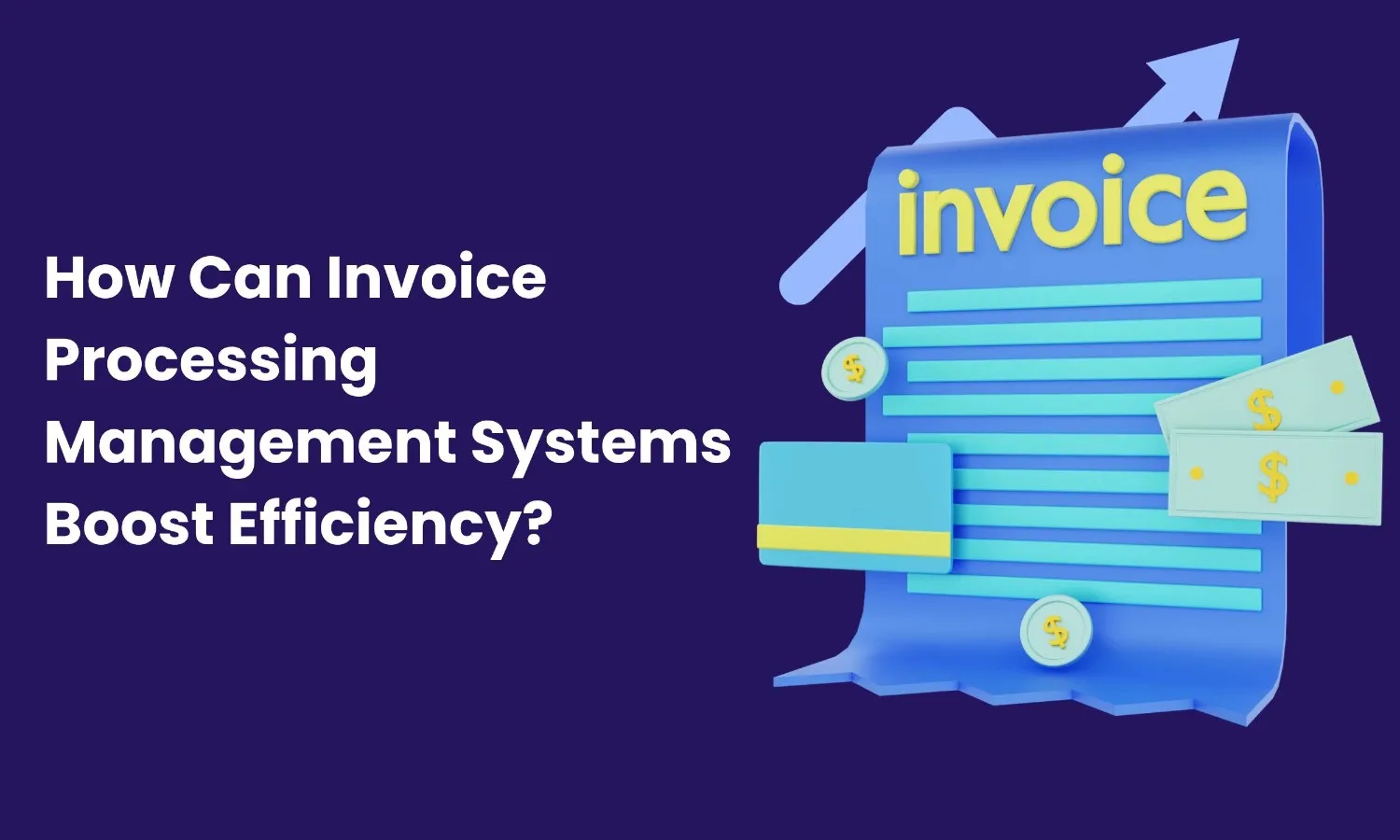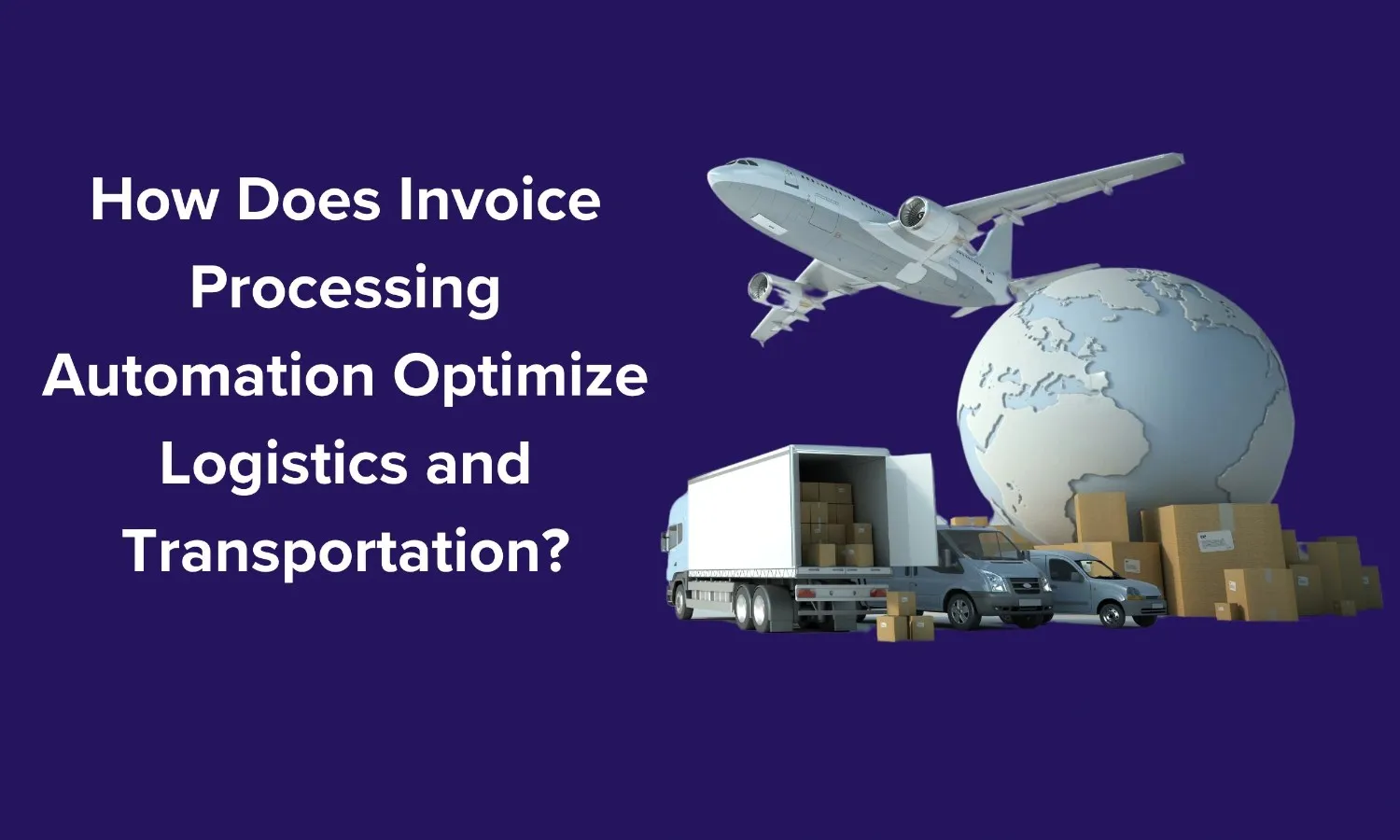Introduction
Benefits of RPA in Business: Robotic process automation (RPA) sounds like something from a science fiction film. This is because many new terms are thrown around, and you’ve probably heard some from your fellow business owners. Although terms like cognitive automation, robotic process automation, machine learning, and artificial intelligence may appear interchangeable, there is a significant difference.
These technologies complement one another and frequently work in tandem to support one mission: increasing productivity, lowering costs, and reducing manual labour. RPA has sparked a digital transformation, while the pandemic has drastically altered the outlook of many businesses. (Read More about “Understanding RPA and its Various Industry Applications”)
In this blog post, we’ll explore the benefits of RPA for SMBs.
Benefits of Robotic Process Automation (RPA) for Small and Medium-sized Businesses (SMBs)
1. Employee Retention and Engagement Have Increased
With more job openings than at any other time, filling vacancies and retaining talent has never been more critical. RPA can help address labor shortages and reduce employee turnover in your organization.
An organization, for example, can rapidly deploy software bots to automate traditional labor-intensive back-office processes, freeing up internal resources and redeploying them to higher-value customer-facing roles.
In addition, these employees are empowered to focus on more engaging, rewarding, and fulfilling work activities after being liberated from the struggle and stress of repetitive mundane tasks.
Employee job satisfaction rises when they focus on more creative work, according to a Forbes study that found that 92% of companies saw improved employee satisfaction after implementing RPA. (Read More about “RPA for Data Entry”)
2. Increased Productivity and Throughput in the Organization
RPA consistently delivers quantifiable performance gains in labour-intensive back-office processes. According to a survey of RPA users, intelligent automation increases back-office capacity by 26% on average.
Furthermore, software robots are typically 4-5 times faster than humans on the same task and work 24 hrs a day, 365 days a year, with no breaks, vacations, or sick days. Another advantage of intelligent automation is the process optimization during the design and deployment of an RPA solution, which allows SMBs to repair broken legacy processes that will not grow with the company.
This gives small and medium-sized businesses a solid, scalable foundation for growth, allowing them to do more with less while increasing their top and bottom lines.
3. Automation Investments with Accelerated ROI and Time to Value
According to the Leslie Willcocks article, organizations see RPA ROI performance of 30-220 percent in the first year. SMBs will benefit from accelerated ROI and a much faster time to value because their technology stacks are typically not as complex (e.g., standard cloud-based systems, “vanilla” off-the-shelf ERP/Accounting, etc.).
After all, these standardized systems allow small and medium-sized businesses to deploy RPA bots much more quickly, typically in 30 days or less. Another advantage of RPA-based automation for SMBs is the small IT department footprint required to deploy RPA bots.
Because RPA operates at the user-interface level “on top of” existing systems, access to in-demand IT developers to build custom interface programs is not required.
Empower Your SMB: Explore RPA Benefits Today!

4. Reduced Operational Costs and Risks of Non-compliance
Organizations can reduce operating expenses in these areas while providing a rapidly scalable foundation to support future growth by utilizing RPA to handle repetitive manual back-office activities.
Regarding risk reduction, research shows that humans make between 3-6 errors per hour, regardless of the activity or task. However, well-designed software robots are 100% accurate, 100% consistent, and 100% policy compliant.
According to a Deloitte study, organizations that use RPA-based processes improve compliance, quality, and accuracy by 90% or more.
5. Customer Satisfaction Has Increased
Zendesk research shows that after just one bad experience, 50% of customers will switch to a competitor. RPA can help prevent customer churn by directly improving customer service, as demonstrated by the internal benefits discussed thus far. (ex.
They freed resources for more proactive and attentive customer service, reduced errors, increased employee engagement, etc.). Furthermore, RPA assists organizations in improving customer-facing turnaround time and lays the groundwork for 24/7/365 attention to customer demands.
6. Automation is No Longer A Choice
For the last decade, RPA has transformed how enterprise organizations do business. Fortunately, as RPA technology has matured and advanced, SMB/SME-sized organizations can now leverage the power of RPA to reduce costs, support growth, increase agility, improve customer service, and improve workforce engagement.
“With opportunity comes responsibility,” Winston Churchill famously said. As seen in the enterprise space, proactive, well-planned intelligent automation execution is now a required strategy component for SMBs to compete in today’s complex and competitive marketplace.
Explore our other insights!

RPA and Cybersecurity: Ensuring Data Protection
Introduction Robotic Process Automation (RPA) has been gaining widespread adoption in recent years thanks to its ability to

RPA and Data Entry: Automating Mundane Tasks
Introduction RPA for Data Entry: In today’s digital age, businesses constantly seek new and innovative ways to improve

Understanding RPA and its Various Industry Applications
Introduction RPA Industry Applications: Robotic Process Automation (RPA) is an innovative technology that automates mundane, repetitive tasks and
Maximize Efficiency: Harness RPA for Your SMB's Success!

Here are Some Stats and Analytics that Highlight the Benefits of RPA for SMBs

1. Cost Savings
RPA can save SMBs up to 80% on the cost of performing repetitive tasks, according to a report by UiPath. Software robots can work 24/7 without needing breaks, overtime, or benefits.
2. Increased Efficiency
RPA can improve efficiency by automating tasks that would otherwise require manual input. This can save employees time, allowing them to focus on more complex and value-added tasks. A study by Accenture found that RPA can improve process efficiency by up to 50%.
3. Improved Accuracy
RPA can significantly reduce the risk of errors when performing repetitive tasks. According to a study by Deloitte, RPA can reduce errors by up to 99%.
4. Scalability
RPA is a great solution for SMBs that want to grow or expand because it is easy to scale up or down to meet changing business needs.
5. Competitive Advantage
By automating processes with RPA, SMBs can gain a competitive advantage by improving their speed, accuracy, and efficiency. According to a survey by Deloitte, 53% of SMBs are already using or planning to use RPA to gain a competitive advantage.

Conclusion
FAQs
1. What is RPA, and how does it benefit small and medium-sized businesses?
RPA, or Robotic Process Automation, uses software robots to automate repetitive tasks and workflows. It can benefit small and medium-sized businesses by increasing productivity, reducing errors, and freeing employees to focus on higher-value tasks.
2. What types of tasks can RPA automate for small and medium-sized businesses?
RPA can automate a wide range of tasks, including data entry, invoice processing, inventory management, customer service, and many other routine tasks that are time-consuming and prone to errors.
3. Does RPA require technical expertise to implement and maintain?
While technical expertise is required to implement and maintain RPA, many vendors offer user-friendly interfaces that make it accessible to businesses without a dedicated IT department. Additionally, many RPA solutions provide ongoing support and maintenance services.
4. Can RPA be customized to meet the specific needs of my business?
Yes, RPA can be customized to meet the specific needs of your business. Many RPA solutions offer a range of customization options, from simple configuration changes to more complex programming and scripting.
5. Will implementing RPA require a significant investment of time and resources?
While some initial investment is required to implement RPA, it can ultimately save time and resources by streamlining workflows and reducing errors. Additionally, many RPA solutions offer a rapid return on investment, with some businesses seeing positive results within weeks or months of implementation.
6. Is RPA secure and compliant with industry regulations?
Many RPA solutions have advanced security features and follow the rules like GDPR and HIPAA. However, choosing an RPA vendor with a strong track record of security and compliance is essential.



